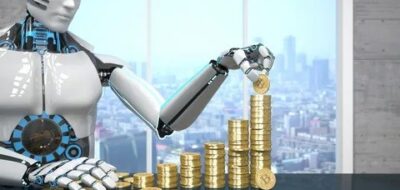My article in BUSINESS INSIDER published 18th of November 2017.
We are witnessing the changes caused by the ever-widening use of technology in our lives. The introduction of artificial intelligence and self-learning machines changes the way decisions are made and communication is carried out. The process is irreversible and will continue. In the near future chatbots will replace live people, and Blockchain and cryptanalysts will radically change the functioning of the financial world.
Industrial Revolution 4.0 will bring far-reaching automation into production and supply chains, raw materials, components and even finished products. Services – initially only those repetitive – will become the domain of machines or software. Vending machines and stand-alone machines can replace people. We are changing our habits, the way we work and how we will be rewarded.
According to the latest forecasts, as a result of the digital revolution and the process of replacing people by machines, by 2020 will lose more than 500 million people. But of course there will be new jobs that require new skills. Which ones will be key in the future? What groups of employees will gain and what will they lose? …
Link to the full article (in Polish)
Related articles on my blog:
– Medicine of the future – computerized health enhancement
– According to our computers … You don’t exist
– What a machine will think when it looks us in the eye?
– Fall of the hierarchy. Who really rules in your company?
– Blockchain has a potential to upend the key pillars of our society

China’s largest robot restaurant is crawling with WALL-E style










Norbert Biedrzycki
Only few occupations are fully automatable but 60% of all have at least 30% technically automatable activities. Automation will change far more occupations— by, partially automating them—than it will replace